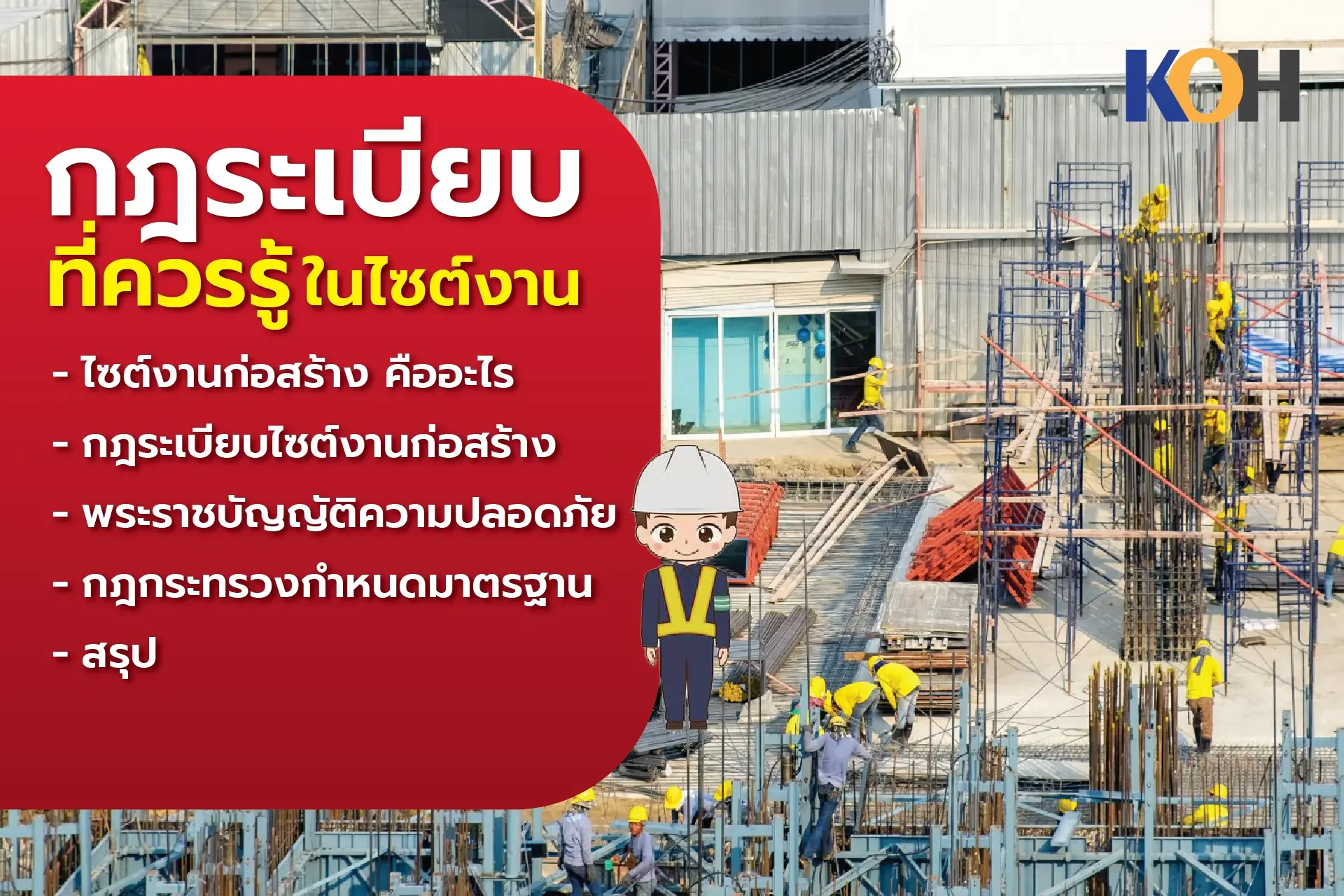Essential Safety Regulations for Construction Sites

Table of Contents
- Introduction to Construction Site Safety
- What Is a Construction Site?
- Safety Regulations for Construction Sites
- Occupational Safety Act B.E. 2554 (2011)
- Ministerial Regulations on Safety Standards in Construction Sites B.E. 2564 (2021)
- Organization of Work Areas and Environment
- Safe Use of Machinery and Equipment
- Safe Handling of Construction Materials
- Safe Working Practices
- Best Practices on Construction Sites
- Conclusion
- References
Introduction to Construction Site Safety
Safety on construction sites is a matter that should not be overlooked. These sites are high-risk areas prone to accidents and hazards from machinery, construction materials, and working at heights. Adhering to safety regulations and standards helps reduce risks and creates a safe working environment for everyone involved.
What Is a Construction Site?
A construction site is a location where building or renovation of structures such as buildings, bridges, roads, or other civil engineering projects takes place. These sites involve the use of machinery, construction materials, and a large workforce, which increases the risk of accidents and potential hazards.
Safety Regulations for Construction Sites
Complying with safety regulations and standards on construction sites is crucial in minimizing the risk of accidents. In Thailand, there are laws and ministerial regulations that set standards and guidelines to ensure the safety of workers and all parties involved.
Occupational Safety Act B.E. 2554 (2011)
The Occupational Safety Act B.E. 2554 (2011) outlines standards and practices related to workplace safety. Key sections to be aware of include:
Section 10
Employers must provide measures and a safe working environment for employees, including personal protective equipment and safety training.[1]
Section 11
Employees are required to comply with safety measures and practices set by the employer to ensure their own safety and that of others, including the proper use and maintenance of personal protective equipment.[1]
Section 12
Employers must immediately report any accidents or incidents that cause harm or could potentially harm the life and health of employees to the relevant authorities.[1]
Ministerial Regulations on Safety Standards in Construction Sites B.E. 2564 (2021)
These ministerial regulations specify safety standards and practices for construction sites, including:
Organization of Work Areas and Environment
- Maintain orderly and safe work areas with clear hazard warning signs.
- Provide sufficient and safe walkways and emergency exits.
- Regularly inspect and maintain the working environment to ensure suitability for tasks.[2]
Safe Use of Machinery and Equipment
- Ensure workers are trained in the proper use of machinery and equipment.
- Inspect and maintain machinery and equipment to keep them in safe working condition.
- Install safety devices such as fall protection systems and guardrails at heights.[2]
Safe Handling of Construction Materials
- Store and arrange construction materials orderly to prevent falls or collapses that could cause injuries.
- Use lifting equipment to move heavy materials to prevent injuries from manual handling.[2]
Safe Working Practices
- Workers must wear personal protective equipment such as safety helmets, safety shoes, and safety harnesses.
- Avoid working in unsuitable weather conditions, such as heavy rain or strong winds.
- Follow safe work procedures and do not violate established safety regulations.[2]
Best Practices on Construction Sites
- Training and Education: Employers should regularly provide safety training to employees.
- Equipment and Machinery Inspection: Regularly inspect and maintain equipment and machinery.
- Communication and Reporting: Encourage employees to report issues or risks and establish effective communication channels.
- Risk Management: Assess and manage potential risks on-site to find preventive and corrective measures.
Conclusion
Safety on construction sites is of utmost importance. Adhering to established regulations and standards helps reduce the risk of accidents and hazards. Both employers and employees must collaborate to create a safe working environment for the benefit of all parties involved.
References
[1] Occupational Safety Act B.E. 2554 (2011). Retrieved from Department of Labour Protection and Welfare
[2] Ministerial Regulations on Safety Standards in Construction Sites B.E. 2564 (2021). Retrieved from Royal Thai Government Gazette


